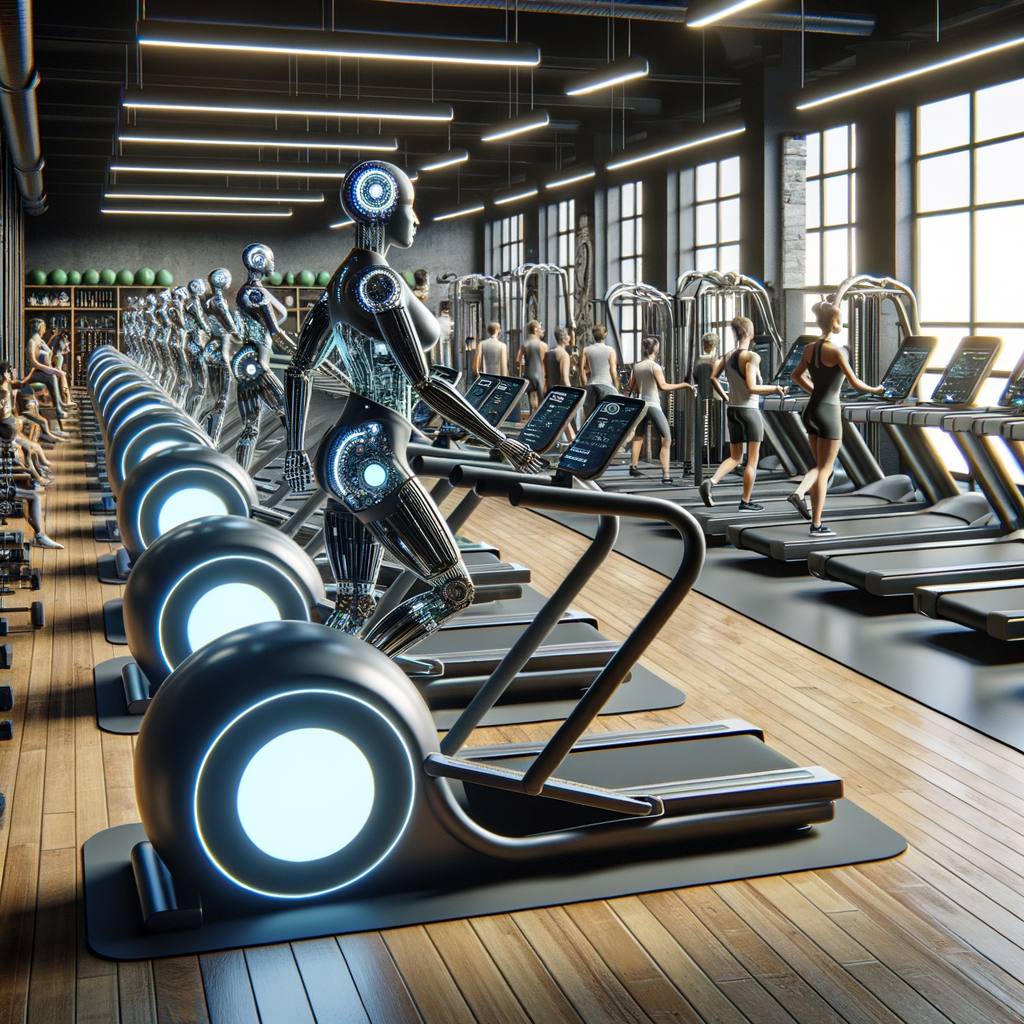Artificial Intelligence (AI) has permeated various aspects of our lives, from smart home devices to self-driving cars. One area where its impact is particularly noticeable is the fitness industry. Elliptical fitness equipment, a staple in many home gyms, is undergoing a revolution thanks to AI. This article delves into how AI is redefining elliptical trainers, making workouts more effective and personalized.
AI-Powered Ellipticals: The Future of Home Fitness
AI-powered ellipticals are rapidly becoming a mainstay in modern home gyms, merging cutting-edge technology with traditional exercise equipment. Unlike their predecessors, these machines are embedded with sophisticated AI algorithms capable of adjusting resistance, speed, and incline in real-time. This allows for a dynamic and responsive workout experience that can adapt to a user’s unique fitness level and goals.
One of the standout features of AI-powered ellipticals is their ability to learn from user behavior. By collecting data such as heart rate, speed, and endurance, the machine can create a profile tailored to the individual. This data-driven approach eliminates the guesswork from workouts, ensuring that each session is as effective as possible.
Moreover, AI-powered ellipticals often come with interactive screens and virtual training programs. These features provide users with guided workouts, complete with virtual trainers who offer real-time feedback and motivation. This level of interactivity not only makes exercising more engaging but also helps users stay committed to their fitness regimes.
The integration of AI in elliptical machines also opens the door to new possibilities in home fitness. With the ability to connect to other smart home devices and fitness apps, these machines create a holistic fitness ecosystem. Users can track their progress, set goals, and even compete with friends, all from the comfort of their own homes.
Personalized Workouts: How AI Adjusts to Your Needs
One of the most compelling benefits of AI-powered ellipticals is their ability to provide personalized workouts. Traditional fitness equipment often follows a one-size-fits-all approach, but AI has changed the game. By analyzing a range of biometric data, AI can create customized workout plans that cater to individual needs and preferences.
For instance, AI can assess factors such as age, weight, and fitness level to recommend the optimal workout intensity. It can also adapt in real-time based on the user’s performance during a session. If the user’s heart rate is too high or too low, the machine can automatically adjust the resistance to ensure a safe and effective workout.
Additionally, AI-powered ellipticals can incorporate user feedback to fine-tune workout programs. If a user finds a particular exercise too challenging or too easy, they can input this information, and the AI will adjust future sessions accordingly. This ensures that workouts remain challenging enough to promote progress but not so difficult that they become discouraging.
Furthermore, AI’s ability to personalize workouts extends beyond physical parameters. It can also consider psychological factors such as motivation and preferences. Some machines offer a variety of workout modes, from high-intensity interval training (HIIT) to more relaxed, endurance-focused sessions. By catering to these preferences, AI helps users stay engaged and motivated, making it easier to stick to a fitness routine long-term.
Enhancing Fitness Results Through Intelligent Algorithms
The use of intelligent algorithms in AI-powered ellipticals is a game-changer when it comes to enhancing fitness results. These algorithms can analyze vast amounts of data to identify trends, patterns, and areas for improvement. This level of insight was previously only available through personal trainers or advanced fitness testing, but AI makes it accessible to everyone.
One of the primary ways intelligent algorithms enhance fitness results is by optimizing workout efficiency. By continuously monitoring performance metrics, the AI can determine the most effective workout routines. This means users spend less time on ineffective exercises and more time on activities that yield tangible results.
Another advantage is the ability to set realistic and achievable goals. AI algorithms can predict future performance based on past data, helping users set targets that are challenging yet attainable. This predictive capability is crucial for maintaining motivation and ensuring steady progress.
Intelligent algorithms also facilitate injury prevention. By analyzing movement patterns and biomechanical data, AI can identify potential issues before they become problematic. It can alert users to adjust their form or take breaks as needed, reducing the risk of overuse injuries and ensuring a safer workout experience.
Finally, AI-powered ellipticals offer the benefit of continuous learning and improvement. As more data is collected, the algorithms become more accurate and effective. This means that the longer users engage with the equipment, the better their workouts become, leading to sustained fitness improvements over time.
In conclusion, AI is revolutionizing elliptical fitness equipment by making it more adaptive, personalized, and effective than ever before. From real-time adjustments and personalized workout plans to the use of intelligent algorithms, AI-powered ellipticals provide a superior fitness experience. As technology continues to advance, we can expect these machines to become even more sophisticated, offering unprecedented levels of customization and efficiency. Whether you’re a fitness novice or a seasoned athlete, AI-powered ellipticals have something to offer, making them an invaluable addition to any home gym.

